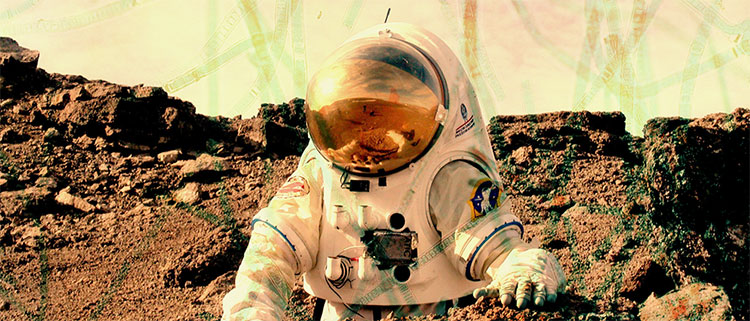Want to breathe on Mars? This bacterium is the key
Before considering eating, drinking, sleeping on the new planet, there is a much more important problem: If we can't breathe, what kind of life do we live?
According to Futurism, we have a new hope in finding the source of oxygen for the Red Planet: cyanobacteria. This bacterium has the ability to absorb carbon dioxide (CO 2 ) and release oxygen in the "least friendly" living environments on Earth. On June 15, a group of scientists published their study in Science, linking these tiny microorganisms to the human viability of Mars.
Do you remember what photosynthesis is? That's how plants convert sunlight into energy. Cyanobacteria also produce energy by photosynthesis, but they can do this in much lower light conditions than you need to grow your tomato. In fact, scientists have found cyanobacteria in the deepest "nooks" of the ocean.

This creature has been found in areas with extremely harsh living conditions, so they will most likely live on Mars as well.
An important component of photosynthesis is chlorophyll . The vast majority of plants on Earth turn light into energy with chlorophyll a. Cyanobacteria are different, they use elemental chlorophyll f to convert distant red / near infrared light into energy. That's why they can live in less light environments like today.
"This study redefined the minimum energy source needed in light to activate photosynthesis , " study co-author Jennifer Morton said. "This type of photosynthesis may be happening right in your garden."
What is the goal of this study?We will be able to bring bacteria spread to Mars to produce oxygen for future "colonization" of human plans . This creature has been found in places with extremely harsh living conditions such as the Mojave, Antarctic desert and even outside of them, so they will most likely also live on Mars.
"This sounds like a sci-fi movie, but space agencies and companies around the world are actively looking for ways to make this aspiration a reality in the near future , " said co-author Elmars Krausz shared. "We can fully exploit these living creatures to create an atmosphere for humans to breathe on Mars."
Of course, we still have a long way to go to Mars, not to mention living there. But at least when we do that, having the air to breathe is no longer an important issue.
- Breathing deeply helps to reduce anxiety and stress
- Breathe through your nose with what benefits?
- Video: What will your lungs do if you breathe deeply?
- Found bacteria can make oxygen to respire
- Found a rare form of chlorophyll in a new bacterium that is sequenced
- 6 recipes look ridiculous but make life easier to breathe
- Video: How will astronauts on Mars breathe?
- Discover new biofuels
- Yogurt can help women prevent HIV
- Small tips from hiccups right away
- How does plants 'breathe'?
- Masks help people breathe underwater
 Announced 3 houses on the Moon and Mars
Announced 3 houses on the Moon and Mars Science proves: Mars also knows 'deflated'
Science proves: Mars also knows 'deflated' Elon Musk announced the price for a Mars trip was 11.6 billion VND, free of charge
Elon Musk announced the price for a Mars trip was 11.6 billion VND, free of charge NASA discovered strange 'gate' on Mars, is the hiding place found?
NASA discovered strange 'gate' on Mars, is the hiding place found? Revealing the first city on Mars, with enough space for more than 250,000 people to live
Revealing the first city on Mars, with enough space for more than 250,000 people to live  We could start building a colony on Mars with just 22 people!
We could start building a colony on Mars with just 22 people!  Amazing discovery of 4.5 billion year old alien ocean of life
Amazing discovery of 4.5 billion year old alien ocean of life  Mars' Surprising Effect on Earth's Oceans
Mars' Surprising Effect on Earth's Oceans  Was there nuclear war in ancient times?
Was there nuclear war in ancient times?  What happens to dead bodies on Mars?
What happens to dead bodies on Mars? 